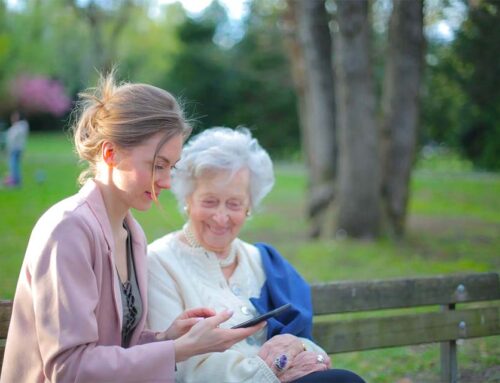Learning Resources
Elder Care – Home Help
A lot of what we are doing at AFAH involves taking on the challenges of ageing ourselves, which means taking control of our own futures through planning and acting before intervention is required. The good news is that we don’t have to do all of this alone.
There are options for us to get help into the home, which may well be the difference between having to change where we live, or staying at home longer. Elder are a company who offer home care that ranges from very light touch, such as short-term help after hospitalisation or a few hours a week, to full-time, live-in care.
Why Elder?
Why should you chose Elder over other providers? I’m aware there a lot of care providers out there. I like Elder because they match carers with the person who needs the care.
Unlike other providers, who are likely to tell you who is coming to work with you, Elder match the carer to your needs with a smart, AI driven, app. As an example, you can look for things like what pets the carer likes and dislikes, the weight of anyone who needs to be lifted, what type of personality they have, etc. So, if you or your parent, have cats, you can chose someone who also likes cats, or if someone needs a lot of chair-to-bed or chair-to-wheelchair transfers, you can choose someone who is capable of doing that, etc.
Furthermore, Elder do the important checks and feedback to make sure the person is also the right professional for your needs. They basically make the connection for you and then handle the payments. If you aren’t happy with your initial carer match, Elder will provide you with your next choice of carer.
I like Elder because they understand the nuances of one-to-one care, and the relationship that needs to exist between the carer and the person needing care. The relationship has to include trust, empathy, kindness, knowledge, and understanding. In my opinion, Elder provide these, and more.
We understand every care story is personal, because ours is no different.

By matching carers on their personality, interests, and skills, older people can enjoy companionship while keeping the routines, hobbies, and lives they love. Whether it’s going to the local bowls club (something Frances used to do quite regularly), popping to the hairdressers for a blow dry, going to church, or simply spending time with friends who live nearby, Elder can help people enjoy life to the fullest extent they can as they age.
Over 2.6 million people believe they will have to quit their jobs to provide care to a loved one. But what happens when people can’t leave their jobs? If marriages break up, or families need to move away? Looking deeper into the social care industry, Pete saw the size of the problem ahead. The number of people aged 85+ in the UK will double in the next 20 years. However, the number of care homes isn’t increasing.



